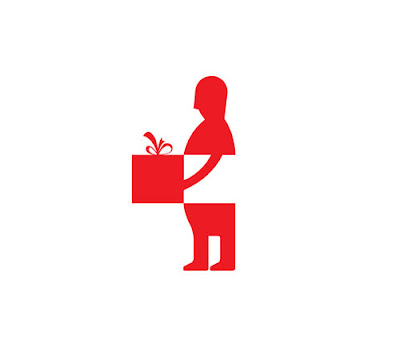 |
| Clockwork Eyes by Michael Ryan |
By Keith Tidman
Life may have emotionally whipsawed you. Maybe to the extent that you begin to imagine how life’s experiences might somehow be ‘better’. And then you hear about a machine that ensures you experience only pleasure, and no pain. What not to like!
It was the American philosopher Robert Nozick who, in 1974, hypothesised a way to fill in the blanks of our imaginings of a happier, more fulfilled life by creating his classic Experience Machine thought experiment.
According to this, we can choose to be hooked up to such a machine that ensures we experience only pleasure, and eliminates pain. Over the intervening years, Nozick offered different versions of the scenario, as did other writers, but here’s one that will serve our purposes:
‘Imagine a machine that could give you any experience (or sequence of experiences) you might desire. When connected to this experience machine [floating in a tank, with electrodes attached to your brain], you can have the experience of writing a great poem or bringing about world peace or loving someone and being loved in return. You can experience the felt pleasures of these things. . . . While in the tank you won’t know that you’re there; you’ll think it’s all actually happening’.
At which point, Nozick went on to ask the key question. If given such a choice, would you plug into the machine for the rest of your life?
Maybe if we assume that our view of the greatest intrinsic good is a state of general wellbeing, referred to as welfarism, then on utilitarian grounds it might make sense to plug into the machine. But this theory might itself be a naïve, incomplete summary of what we value — what deeply matters to us in living out our lives — and the totality of the upside and downside consequences of our desires, choices, and actions.
Our pursuit of wellbeing notwithstanding, Nozick expects most of us would rebuff his invitation and by extension rebuff ethical hedonism, with its origins reaching back millennia. Our opting instead to live a life ‘in contact with reality’, as Nozick put it. That is, to take part of experiences authentically of the world — reflecting a reality of greater consequence than a manufactured illusion. A choice that originates, at least in part, from a bias toward the status quo. This so-called status quo bias leads some people — if told to imagine their lives to date having been produced by an ‘experience machine’ — to choose not to detach from the machine.
However, researchers have found many people are reluctant to plug into the machine. This seems to be due to several factors. Factors beyond individuals finding the thought of plugging in ‘too scary, icky, or alien’, as philosopher Ben Bramble interestingly characterised the prospect. And beyond such prosaic grounds as apprehension of something askew happening. For example, either the complex technology could malfunction, or the technicians overseeing the process might be sloppy one day, or there might be malign human intrusion (along the lines of the ‘fundamentalist zealots’ that Bramble invented) — any of which might cause a person’s experience in the machine to go terribly awry.
A philosophical reason to refuse being plugged in is that we prefer to do things, not just experience things, the former bringing deeper meaning to life than simply figuring out how to maximise pleasure and minimise pain. So, for example, it’s more rewarding to objectively (actually) write great plays, visit a foreign land, win chess championships, make new friends, compose orchestral music, terraform Mars, love one’s children, have a conversation with Plato, or invent new thought experiments than only subjectively think we did. An intuitive preference we have for tangible achievements and experiences over machine-made, simulated sensations.
Another factor in choosing not to plug into the machine may be that we’re apprehensive about the resulting loss of autonomy and free will in sorting choices, making decisions, taking action, and being accountable for consequences. People don’t want to be deprived of the perceived dignity that comes from self-regulation and intentional behaviour. That is, we wouldn’t want to defer to the Experience Machine to make determinations about life on our behalf, such as how to excel at or enjoy activities, without giving us the opportunity to intervene, to veto, to remold as we see fit. An autonomy or agency we prefer, even if all that might cause far more aggrievement than the supposed bliss provided by Nozick’s thought experiment.
Further in that vein, sensations are often understood, appreciated, and made real by their opposites. That is to say, in order for us to feel pleasure, arguably we must also experience its contrast: some manner of disappointment, obstacles, sorrow, and pain. So, to feel the pride of hearing our original orchestral composition played to an audience’s adulation, our journey getting there might have been dotted by occasional stumbles, even occasionally critical reviews. Besides, it’s conceivable that a menu only of successes and pleasure might grow tedious, and less and less satisfying with time, in face of its interminable predictability.
Human connections deeply matter, too, of course, all part of a life that conforms with Nozick’s notion of maintaining ‘contact with reality’. Yes, as long as we’re plugged in we’d be unaware of the inauthenticity of relationships with the family members and friends simulated by the machine. But the nontrivial fact is that family and friends in the real world — outside the machine — would remain unreachable.
Because we’d be blithely unaware of the sadness of not being reachable by family and friends for as long as we’re hooked up to the electrodes, we would have no reason to be concerned once embedded in the experience machine. Yet real family and friends, in the outside world, whom we care about may indeed grieve. The anticipation of such grief by loved ones in the real world may well lead most of us to reject lowering ourselves into the machine for a life of counterfeit relationships.
In light of these sundry factors, especially the loss of relationships outside of the device, Nozick concludes that the pursuit of hedonic pleasure in the form of simulations — the constructs of the mind that the Experience Machine would provide in place of objective reality – makes plugging into the machine a lot less attractive. Indeed, he says, it begins to look more like ‘a kind of suicide’.









